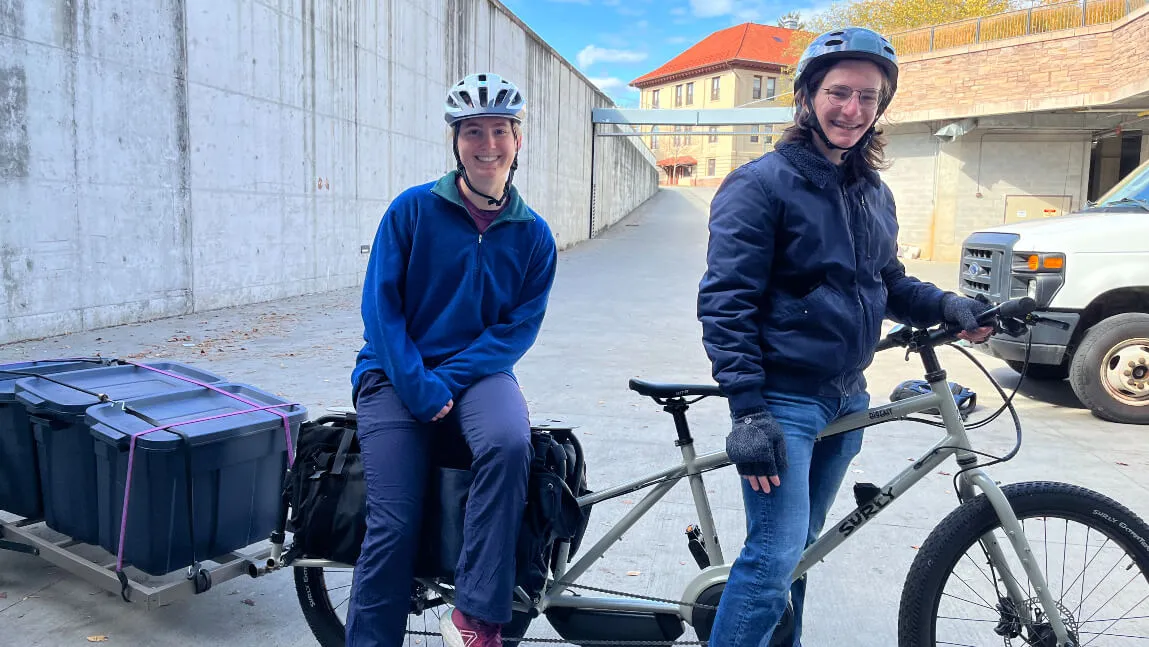There’s a greener, cleaner way of gathering food waste in residence halls this fall. Three student Eco-Reps, Molly Babowal ’25, Alissa Frame ‘23 and Cy Stavros ’26, have been collecting food scraps by cycling to each residence hall on a new Surly electric-assist cargo bike.
“It runs on good old fashioned pedal power,” says Corey Berman, UVM Recycling and Zero Waste program manager. In the past, the program relied on a campus vehicle. However, the new system eliminates the need for gas powered transportation.
Most campus food waste is generated in UVM dining halls, Berman said. “But students also eat in their rooms and the Eco-Rep compost team is there to make sure this waste stream is diverted into compost.”
The new rig lives at the loading dock of the Davis Student Center. Twice a week, each Monday and Wednesday, the Eco-Reps pedal out to pick up points, usually the lobbies of residence halls. They bring back the food waste to the Davis Center and deposit it in bins located in a climate controlled walk-in cooler that helps keep odors down and prevents the carts from freezing in winter. The material is then picked up by Casella Waste and transported to Green Mountain Compost.
“I really start straining if I forget to turn the bike on,” says Stavros. “But generally it’s pretty easy to get around.” He says a typical run covering half the campus in good weather might take a few hours.
The cost of the bike and a new Surly trailer was paid for by a $5000 Sustainable Campus Fund (SCF) proposal Berman submitted in 2019. The fund originated back in 2008 by students to pay for innovation and research projects on campus through a modest, self-imposed $10 per semester student fee. Berman worked with other local partners like Burlington’s Old Spokes Home to evaluate different models.
Berman sees the program as a shared responsibility between the Eco-Rep service and the on-campus student population. “We’re saying to students ‘we want to take responsibility for food scraps’ and in return we’re asking them to make the short trip to drop off their waste in the lobby bins. It’s a great way to build a culture of sustainability we all aspire to.”
He says the pickup system has already drawn attention from other UVM units who see it as a promising alternative for making routine deliveries and pickups around campus. “It’s a cool pilot that shows how we can move other materials around campus without relying on vehicles.”
The onset of colder, snowier weather will present another challenge. The program may need to revert to motorized pickup Berman says. “Safety comes first and we’ll provide the Eco-Reps with what they need, be it winter gear, flashing lights on the bike and visibility vests. But I’m interested to see how far we can push this model.”
